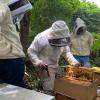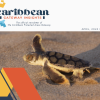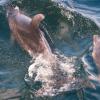Is Capacity Building Important in Policy Development for Sustainability? A Case Study Using Action Plans for Sustainable Marine Protected Areas in Belize
We undertook a capacity-building exercise around marine protected areas (MPAs) that involved both local nongovernmental organization (NGO) community workers and a government fisheries officer, so that community engagement could be directly interfaced with fisheries operations and policy. Targeting a government worker is a relatively new approach. Our methodology used a modified nominal group technique and Delphi technique to develop personal action plans to facilitate the future of sustainable MPAs in the MesoAmerican Barrier Reef system. The involvement of a fisheries officer resulted in direct transfer of information from the communities to the government department. The personal action plans involve improvements to organization and management, education, support, and policy development. In addition, three NGOs, TASTE (Toledo Association for Sustainable Tourism and Empowerment), TIDE (Toledo Institute for Development and Environment), and Friends of Nature, have been incorporated into a single self-governing organization that spans four MPAs in southern Belize. This is a significant advance, allowing areas that were subject to illegal fishing to be monitored and policed.
Area of Interest: Belize
Year: 2008




